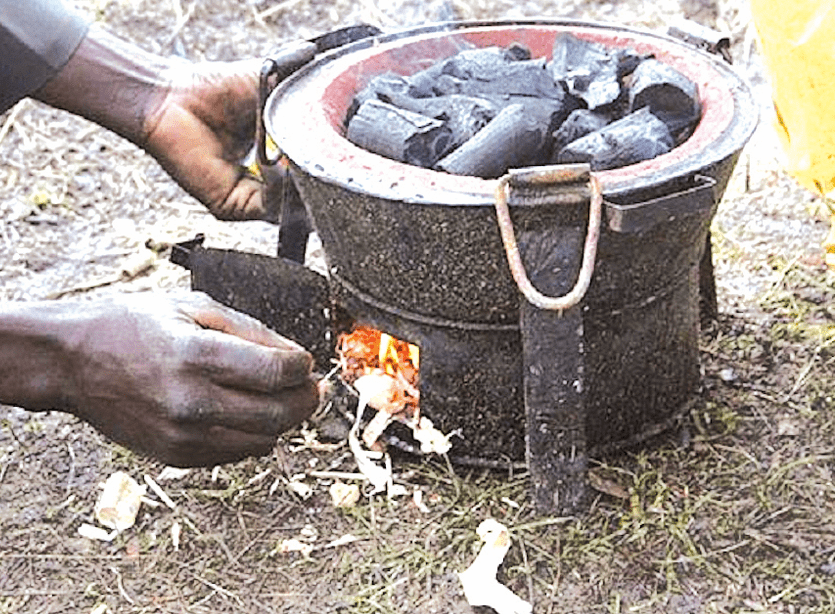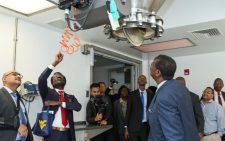Charcoal market strong amid ban

charcoal remains a primary energy source in Kenya, deeply embedded in the daily lives of millions despite tough policies aimed at reducing its use.
Particularly in rural areas and informal settlements, charcoal’s affordability and availability make it indispensable for cooking and other household needs.
Hotels, restaurants, and street food vendors also depend heavily on charcoal for tasks like roasting meat or grilling maize, underscoring its cultural and economic significance.
Charcoal consumption in Kenya was estimated at 1.6 to 2.4 million tonnes annually, highlighting its pervasive role.
However, this reliance comes at a high cost to the environment. The partial logging ban imposed in 2018 sought to curb deforestation and restore ecological balance.
While well-intentioned, the ban disrupted the supply chain, causing the price of a bag of charcoal to soar to as much as Sh3,000 in some regions.
This spike placed a significant financial burden on households and businesses that depend on charcoal daily.
In July 2023, the government lifted the ban under a “Responsible Forest Management” framework to strike a balance between conservation and meeting energy demands. However, the charcoal market remains under pressure. The market’s value declined from $790 million in 2022 to $778 million in 2023, as households and businesses increasingly turned to alternatives like biochar, briquettes, and Liquefied Petroleum Gas (LPG). Yet, for many, the transition is neither immediate nor straightforward.
Peter Njenga, a charcoal trader in Nairobi, reflects on the challenges. “Business is slow these days,” he says. “People say gas is cheaper now, and we’ve also struggled to get affordable supplies since the ban.”
His experience mirrors the broader reality: While cleaner alternatives are gaining traction, charcoal remains indispensable in many regions where modern energy solutions are inaccessible or unaffordable.
Illegal transportation
Reports indicate that much of the charcoal sold in urban centres is transported illegally from counties such as Kajiado, Kitui, and Narok. Motorists and motorcyclists often collaborate to ferry charcoal through backroads, with the business remaining lucrative despite crackdowns. A single bag of charcoal now retails at Sh3,000, reflecting the high demand and limited supply.
In urban areas, LPG has emerged as a strong alternative to charcoal, driven by government initiatives to promote its adoption. Tax exemptions on LPG cylinders and subsidies for low-income households reduced the initial costs, making the cleaner fuel more accessible. By August 2024, a 13kg LPG cylinder was priced at Sh3,198.66, slightly higher than Sh3,000 the previous year due to global market trends.
The introduction of the Open Tender System (OTS) in 2024 has helped stabilise LPG prices by fostering competition among suppliers, mitigating steep price hikes.
The push toward LPG adoption is rooted in more than just economic considerations. Charcoal burning is a major contributor to indoor air pollution, linked to over 19.6 million respiratory cases reported in 2023.
The use of LPG as a cleaner cooking solution significantly reduces exposure to harmful emissions, improving public health outcomes. The government’s plan to distribute 8.4 million subsidised LPG cylinders to low-income households underscores its commitment to promoting cleaner energy options.
Still, the transition from charcoal to alternatives like LPG remains uneven. While urban households benefit from improved infrastructure and access, rural communities face barriers such as high costs and limited supply networks. For many in these areas, charcoal remains the only viable option. Moreover, cultural preferences and cooking practices also play a role in sustaining charcoal’s popularity, as certain dishes are believed to taste better when prepared using traditional methods.
Lifting of logging ban
Efforts to stabilise the charcoal sector have been multifaceted. Lifting the logging ban was one such move, intended to ease supply constraints while promoting sustainable production practices. Initiatives like biochar and briquette production have also gained traction, offering more eco-friendly alternatives. However, these measures have yet to fully offset the environmental and economic pressures on the sector.
The government faces a delicate balancing act in managing Kenya’s energy sector. On one hand, subsidies, tax incentives, and improved LPG distribution networks aim to accelerate the shift toward cleaner fuels. On the other hand, stabilising the charcoal market through sustainable practices is essential to protect the livelihoods of producers and traders. Striking this balance will require coordinated efforts among stakeholders, including policymakers, environmentalists, and local communities.
Until affordable and accessible alternatives reach every corner of the country, charcoal will likely remain indispensable for many households and businesses. Addressing this complex issue requires not only tougher policies but also comprehensive solutions that consider the economic, cultural, and environmental dimensions of energy use in Kenya.










